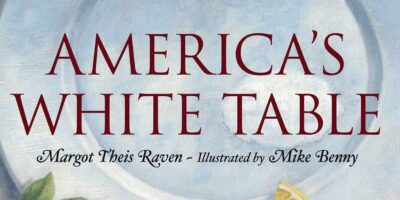It’s been a Vocational week at Northern Essex Community College.
Career Ladders
There is a lot happening along the riverfront in downtown Haverhill, as the old Woolworth building, and a few others, finally come tumbling down to make way for Harbor Place, a new development with ground floor retail and river front restaurant space, a mix of offices and classrooms, including a satellite campus for UMass Lowell, and a pedestrian path to a new Merrimack River boardwalk and public plaza—all with underground parking.
It’s an exciting collaboration between the city, the state, the Haverhill Foundation, and a number of other partners who believe in this vision of a Haverhill renaissance along the river.
For our part, NECC has been exploring the possibility of a Hospitality and Culinary Arts school downtown. Labor market data tells us there is a strong need for lots of different skilled workers in hotels, restaurants, event planning and facilities, and the tourism industry in Massachusetts, now and for several years to come.
The college has offered a Hospitality degree in the past, and we have several potential partners in the area, including vocational high schools, other community colleges, and public and private four-year universities that may be interested in contributing specialty programs and services to such a new school. Among all of those educators, we have a pretty good idea already of what kinds of classes we would need to offer that would lead to certificates, degrees, and good jobs for graduates.
But beyond that, what are employers around Haverhill and the northeast part of Massachusetts really looking for when they hire people for those good jobs?
To get a better idea, we invited a focus group of local hospitality and culinary business owners to campus last Monday to tell us about opportunities in their industries, and how to turn jobs into meaningful careers.
Long-time friend of NECC and owner of Simply Elegant Catering, Sam Ambra, told us he is looking for the basics—people who know how to prepare and serve food for events, take inventory and calculate costs, and so on. But he is also always seeking qualities in people that go beyond whatever education or formal training they might have. The catering business can involve long and unpredictable days and weeks, and he is looking for people who can function effectively as part of a team, understand customer service, and recognize that relationships drive the business.
Alan Boisvert, owner of one of my favorite downtown Haverhill restaurants, Keon’s, added that in the restaurant business, everyone should know Spanish, take pride in appearance, understand the written and the unwritten rules of etiquette in the kitchen and in the “front of house” where the customers are.
Dana Depelteau, from the Best Western Merrimack Valley hotels, encouraged the group to think big. She recognized that a lot of people take on entry level jobs in the hospitality or culinary industry—as waitstaff in restaurants or desk clerks in hotels—and then build on those jobs with more education and experience. Event planners are in high demand—for everything from backyard graduations and weddings to corporate conferences and the 2024 Boston Olympics.
And our very own Mark Forman, NECC trustee and Boston Coffee Cake entrepreneur, offered this piece of inspiration: This college is about helping people discover themselves and what they want to be, and giving them what they need to reach their goals. Whether they want to be teachers, or engineers, or police officers, or scientists, or nurses—or chefs, hoteliers, or own their own restaurant. Anything at all. That’s what we do.
Indeed.
Bon Appetit!
What Do You Want to Be When You Grow Up?
You’ve heard the old saying: “Do what you love, and you’ll never work a day in your life,” right?
Add up all the hours, and the average American spends 13 years, or about 17%, of their life at work.
And…
The Gallup Organization has conducted surveys with nearly two million employees in 101 companies from 63 countries, and one of the questions they asked was, “At work, do you have the opportunity to do what you do best every day?”
All around the world, only two in ten people agreed that they had a chance to play to their strengths.
Thirteen years—and where’s the love?
It’s true, there’s a reason it’s called “work,” and no one is guaranteed or owed an enjoyable living—but can’t more than twenty percent of us find our way to it anyway?
A few days ago, Big Sis T and Little Sis Z and I were talking about all of this.
Big Sis, nearly fifteen and looking ahead to college, is interested in music education. She loves teaching younger children, has a beautiful singing voice, and knows her way around most stringed instruments, from guitars and ukuleles (thank you, Meghan Trainor), to mandolins and banjos (insert your own banjo joke here).
And Little Sis, who turns eleven on Monday, loves the kitchen and wants to be a chef (like her Uncle Gabe). It may also be her way of claiming her own space around the house, since Big Sis will proudly tell you that she can barely make a pot of Kraft macaroni and cheese without burning the water.
T and Z wanted to know how someone decides what kind of work they want to do for the rest of their life. And just what is the difference between a “job” and a “career” anyway?
BIG SIS: Really, Dad, how did you end up where you are today?
DAD: That’s a good question, T. I mean, no ten-year-old kid in the history of the world has ever looked up at his parents or his teacher and said, “I want to be a community college president when I grow up.” It’s just not on the radar screen. And it wasn’t something I thought about when I was your age.
LITTLE SIS: What did you want to do when you were our age?
DAD: I always wanted to be a writer—especially a newspaper reporter. When I was in high school, I was the editor of our school paper, and I worked for a while as a layout artist for a community newspaper—back before computers did all the work, and we had to wax copy and stick it to big sheets of paper!
BIG SIS: Wow, you really are old, aren’t you?
DAD: Not really, believe it or not—but thanks for asking. I had a bunch of other jobs, too.
LITTLE SIS: Like what?
DAD: Well, I worked in a Mexican restaurant (that’s where I learned how to make a great guacamole!) I also ran a roller coaster at an amusement park, built roof trusses for houses, drove a truck, and played the Principal Chief of the Cherokee Nation in an outdoor drama called The Trail of Tears.
LITTLE SIS: Come on, really? You did all that?
DAD: Yep. And a few other things, too. Most of the jobs I had when I was younger were just that: jobs that earned me money to live on and help pay my way through school.
BIG SIS: OK, I can understand how they taught you to make guacamole, run a roller coaster, and drive a truck, but didn’t you have to be a Cherokee to play the Chief?
DAD: Another very good question! The Chief’s name was John Ross, and the Cherokee called him “Guwisguwi,” which means “Little White Bird,” because he was actually seven-eighths Scottish.
BIG SIS: And this helped you become a college president how, exactly?
DAD: Well, in college I started out studying journalism, and changed to studying theatre. The acting and the construction work were actually jobs that helped me toward my first “career.” When I finished all of my college degrees, I went to work as a professor of theatre at a couple of different colleges, and I worked as a technical director, designing and building sets. I even created an apprenticeship program for people studying technical theatre, directed plays and musicals, and acted in some movies and commercials. I was doing what I loved—and earning a living at it.
LITTLE SIS: Ooh, are you famous? Do you know any big stars?
DAD: No, I don’t think I ever got famous as an actor. I did meet a lot of celebrities, but you two are the biggest stars I know.
BIG SIS: Thanks, Dad. So, if you were doing what you loved and making a living at it, what changed?
DAD: You did, sweetheart.
BIG SIS: What did I do?
DAD: You were born. Back then, I was going all over the place to do all those things, and I was earning a decent living, but needed to be home more, and planning for a family. What I really loved about everything I was doing waseducation. So, instead of a bunch of jobs that took me all over the place, I started doing one job at a time (mostly) for community colleges, which are my favorite places to work. I became a dean for a while, then a vice president, and then the president at NECC.
BIG SIS: How do we know you’re not still acting?
DAD: Ha! You do have good questions today, T. Yes, that theatre background does come in handy sometimes. The point is, you two are young, and now is the time for you to dream about all of the things you love and might want to do and be as you grow up. You might find that those dreams change along the way—and that’s OK, too. Be open to possibilities and new experiences, and learn something from everything you do.
LITTLE SIS: And how about if I’m the first ten year old to say I want to be a community college president when I grow up?
DAD: Here, let me show you how to make some great guacamole…
As you look back on your week and forward to the one ahead, may you do what you love, play to your strengths, and be open to new possibilities.
And if you’d like to learn more about what’s been happening at NECC, please:
Visit the NECC Newsroom
Find me at www.facebook.com/lane.a.glenn
Or on LinkedIn
–Lane






